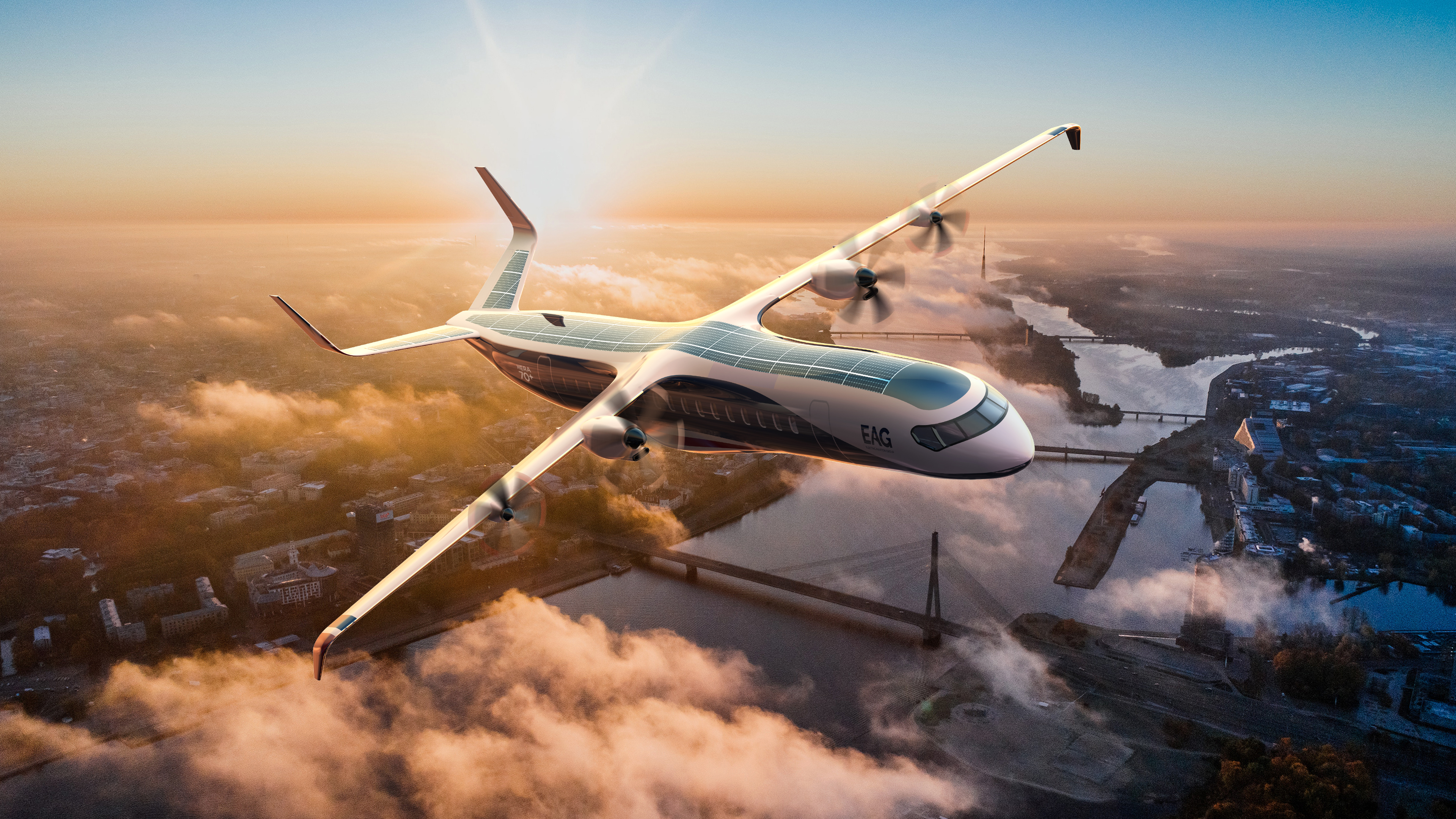Click Here to View This Page on Production Frontend
Click Here to Export Node Content
Click Here to View Printer-Friendly Version (Raw Backend)
Note: front-end display has links to styled print versions.
Content Node ID: 419373
Electric Aviation Group (EAG) is stepping up its plans to bring a hydrogen-powered regional airliner to market by establishing a subsidiary company to develop a megawatt-class fuel cell stack system for its planned 90-seat Hydrogen Hybrid-Electric Regional Aircraft (H2ERA). The Smart Megawatt Stack (SMS) Fuel Cell Systems subsidiary will develop megawatt-scale fuel cell stack systems for both aerospace and non-aerospace applications.
UK-based EAG first announced plans for an aircraft with 70 or more seats back in July 2020. Discussions with prospective operators have since prompted the company to aim to deliver a 90 seater that would have a range of around 1,200 nm. The range projection is largely based on the premise that in the early days of hydrogen propulsion in air transport the limited availability of the fuel may mean that services have to be planned around all fueling being conducted at the airport where the service originates until infrastructure supports en-route refueling.
According to EAG, SMS Fuel Cell Systems will develop what it calls smart megawatt-scale fuel cell stack systems for large aircraft. This is expected to consist of between four and six fuel cell stacks, with a combined capacity to deliver between seven and eight megawatts of power. The company says the technology could also be used for heavy trucks, ships, and trains.
The founders of SMS Fuel Cell Systems include EAG’s CEO, Kamran Iqbal, along with several prominent academics from London’s Imperial College. Among these co-founders are Nigel Brandon, dean of engineering and founder of Ceres Power and RFC Power; Anthony Kucernak, professor of chemical physics and co-founder of Bramble Energy, RFC Power, and SweetGen; Billy Wu, senior lecturer at the Dyson School of Design Engineering, who has expertise in electromechanical devices; and Huizhi Wang, senior lecturer at the Department of Mechanical Engineering, and group leader of the Electrochemical Science and Engineering Group.
“The megawatt-scale fuel stack system to be developed by this new venture is yet another key step to make EAG’s aircraft a reality,” Iqbal said. “Our aircraft and its enabling technologies will become a blueprint for future larger and smaller green aircraft. It is the foundation to secure a leading share in the sustainable mass transportation market.”
Iqbal told FutureFlight that to achieve the goal of decarbonizing air transport, it is necessary to bring larger aircraft into commercial service than the 10- to 19-seater models currently being considered by other hydrogen pioneers. The H2ERA airliner could enter service from 2030, with some power coming from batteries to supplement the power generated directly from the fuel cell stacks. The aircraft's 2MW electric motors are being developed through a separate joint venture between EAG and the UK's University of Nottingham.
In March 2021, leasing group Falko made an undisclosed investment in EAG. It has also received a strategic investment from Ireland-based airline CityJet.
Since last year, the EAG team has also been working with the engineering and design group Atkins. The company is providing expertise in safety assessments and specifications, as well as systems integration and certification.
Several companies, most notably Universal Hydrogen and ZeroAvia, are working to convert smaller existing regional airliners to hydrogen power. Other developers of hydrogen fuel cell technology active in the aviation sector include HyPoint and Plug Power.
